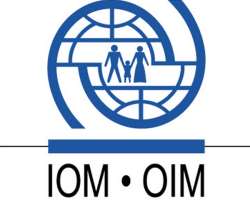IOM Ramps Up Eastern DRC Crisis Response

GENEVA, Switzerland, December 7, 2012/African Press Organization (APO)/ -- IOM has received seed funding of USD 55,000 from the Swiss Development and Cooperation Agency (SDC) to erect emergency shelters for 800 internally displaced people (IDPs) at the largest spontaneous displacement sites in the Eastern Democratic Republic of Congo's North Kivu province.
The shelters will allow families to leave school buildings where they have been sheltering since the takeover of Goma, the capital of North Kivu, by M23 rebels on November 21st. The rebels have now withdrawn from the city.
“Until now, the security situation in the area has made it very difficult to help people forcibly displaced by the conflict. We now need to start meeting the most basic needs of displaced families,” says IOM DRC Chief of Mission Laurent De Boeck.
De Boeck will be visiting the displacement sites again this weekend to ensure close coordination with UN and NGO partners. IOM has appealed for USD 5.3 million to support its work in the Eastern DRC.
In close coordination with UNHCR to support inter-agency efforts to address the needs of IDPs in spontaneous sites, IOM has articulated a 3-axis strategy: information gathering and mapping of displacement; support for the coordination of humanitarian assistance in spontaneous sites and the provision of direct support to IDPs and hosting communities; and strengthening the resilience of IDPs and communities.
The strategy is in line with the Migration Crisis Management Emergency Framework newly adopted by the IOM Member States at the 101th Session of the IOM Council in November 2012.
In the light of this strategy, IOM has been monitoring the displacement crisis since its onset, pre-positioning staff to support its offices in Goma, Bukavu, Bunia, Kasindi, Walikale, Kinshasa, Kigali, Bujumbura and Kampala.
Since the onset of the crisis, an estimated 129,000 people have been newly displaced, adding to the over 2.4 million IDPs already in the DRC.
